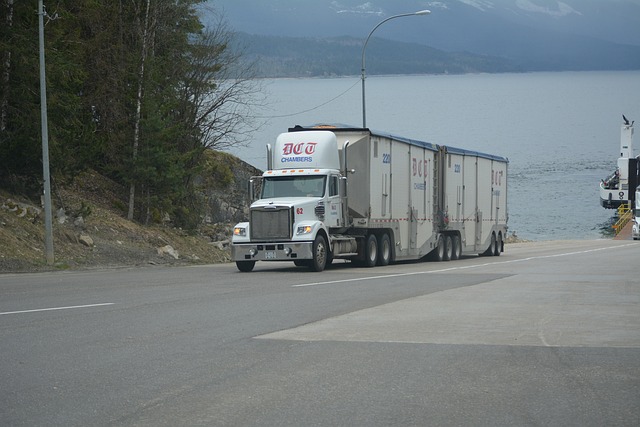Cargo insurance, a cornerstone of global trade, protects against risks like accidents and natural disasters, ensuring goods' safe transit. Physical damage policies are key, offering not just financial coverage but also claim assistance, replacement services, and tracking solutions for high-value shipments. Customizable to specific business needs, these policies are more vital than ever in today's complex digital supply chains, providing peace of mind and comprehensive freight security.
In today’s globalized trade landscape, ensuring freight security is paramount. This article explores the crucial aspect of cargo insurance, offering a comprehensive guide for businesses navigating complex shipping networks. We delve into various insurance options, with a focus on understanding Physical Damage Policies—essential coverage for goods in transit. From standard policies to customized solutions, we unravel the intricacies, helping you make informed decisions to safeguard your shipments and mitigate risks effectively.
Understanding Cargo Insurance: A Comprehensive Overview

Cargo insurance is an essential component of freight security, offering protection against potential risks and losses during transportation. Understanding these insurance options is crucial for businesses involved in international trade. Physical damage policies are a fundamental type of cargo insurance that safeguard goods against perishable or non-perishable physical harm during transit. These policies cover various events, including accidents, natural disasters, theft, and handling errors, ensuring that the value of the cargo is compensated if any physical damage occurs.
By purchasing cargo insurance, shippers can have peace of mind knowing their goods are protected. This coverage extends beyond simple financial compensation; it also includes assistance in managing claims, providing replacement or repair services, and offering efficient tracking solutions for high-value shipments. With different policy options available, businesses can tailor their insurance to specific needs, ensuring comprehensive freight security.
Physical Damage Policies: Coverage for Goods in Transit

Physical damage policies are a crucial aspect of freight security, offering comprehensive coverage for goods in transit. These policies protect against various risks, including accidents, natural disasters, and human error, ensuring that shipments arrive at their destination intact. In today’s digital era, where supply chains are complex and global, having robust physical damage insurance is more essential than ever. It provides peace of mind for businesses, assuring them that their valuable cargo is safeguarded during every stage of the journey.
When exploring cargo insurance options, understanding the specifics of physical damage policies is key. These policies typically cover a wide range of perils, such as fire, flood, and theft, with customizable limits and deductibles to suit different shipping needs. By insuring against physical damage, businesses can mitigate financial losses and ensure the continuity of their operations, making it an indispensable component in any comprehensive freight security strategy.
Types of Freight Security Measures and Their Importance

Freight security encompasses a range of measures designed to protect goods during transit, ensuring their safe arrival at the destination. These include various physical damage policies that safeguard against perils like accidents, natural disasters, and theft. Such policies are paramount in mitigating financial losses for businesses and shippers, as they provide coverage for damaged or missing cargo.
Beyond physical damage protection, freight security measures also encompass logistical strategies such as secure loading and unloading procedures, tracking systems, and surveillance. Integrating these into shipping operations is essential for preventing fraud, ensuring compliance with regulations, and maintaining the integrity of the supply chain, ultimately contributing to a more robust and reliable logistics network.
Navigating Customized Cargo Insurance Options

When exploring cargo insurance, one of the key considerations is understanding the range of customized options available to suit specific freight needs. Beyond standard coverage, physical damage policies play a pivotal role in safeguarding against potential risks during transit. These specialized policies are tailored to address various perils, from natural disasters and accidents to theft and vandalism. By carefully assessing these options, businesses can design an insurance plan that aligns with their unique cargo requirements.
Navigating this landscape involves a deep dive into the specifics of different coverage levels, exclusions, and deductibles. Insurers often offer flexible policies that cater to diverse industries, whether it’s for high-value goods, hazardous materials, or specialized transportation. By comparing quotes and reviewing policy terms, shippers can make informed decisions to ensure their cargo is adequately protected throughout its journey.
In exploring cargo insurance options, businesses can fortify their freight security, mitigating risks associated with physical damage during transit. By understanding various policy types, from comprehensive coverage for goods in transit to tailored solutions, companies can make informed decisions to protect their valuable cargo. Implementing these measures is crucial for maintaining supply chain integrity and ensuring a robust, secure transportation network. Specifically, recognizing the importance of physical damage policies allows businesses to navigate customized insurance options, enhancing overall freight security.
